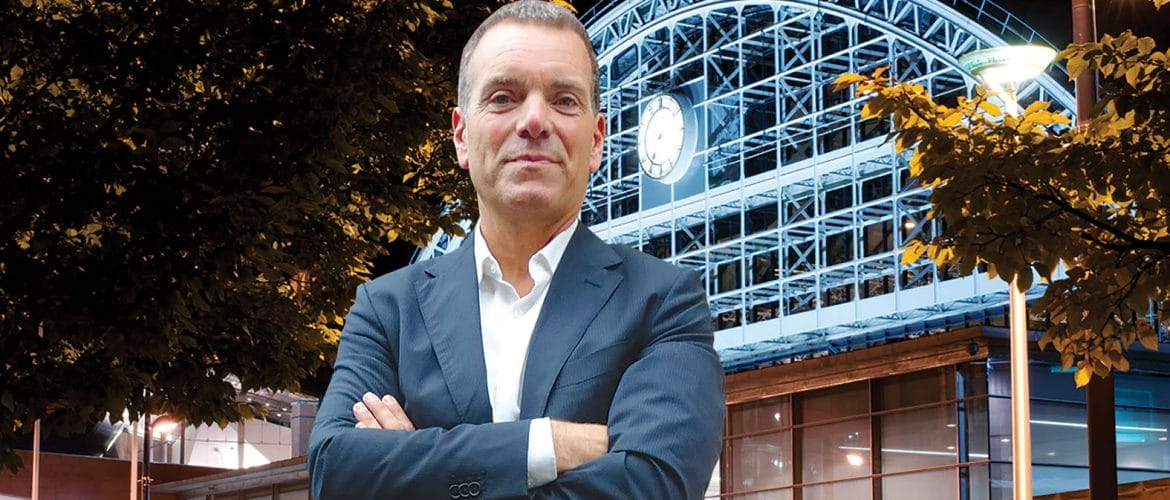Phil Jones MBE, managing director of business technology solutions provider, Brother UK.
On many occasions in my career, I’ve heard business leaders say that the vital components for success are a deep and unwavering passion, and steadfast commitment to an idea. And while I appreciate the sentiment, my experience has shown me the opposite. Successful companies are often built by testing assumptions and reacting as new information emerges.
The commitment piece comes after those smaller market tests and experiments have been quickly validated.
Taking this into account and being open to what’s not working has often been the key to nailing the right product and sales strategies, and to ensuring our people are connected, engaged and motivated. I learn something new every day about our customers, our people, the industry we work in and the Greater Manchester business community, and it’s important they flow back into our longer-term direction of travel as a business.
Adapting in a new era
Very few companies will be able to simply pick up where they left off in March and all business models have either seen demand stop, decline or suspend – or in some fortunate cases, accelerate. Macro-economic forecasts indicate a tough time for the economy and for the prospects of business failure for many.
In response, we must all address the changes on the horizon and consider five key themes to fundamentally re-shape our firms for the future:
Re-organise (business model/cost structure),
Enhance (do better what you did before),
Pivot (re-invent),
Create (invent something new to address the new) or
Capitalise (grow exponentially from what is).
Some businesses are already doing this. Gin distillers are making hand sanitiser gel (pivot), microbreweries have been rapidly launching direct to home deliveries (enhance) and the web conference business, Zoom, has seen revenues surge by 169 per cent (capitalise).
Adaptability sits at the very heart of this. The severe shock that our regional business community and the wider economy has felt may bring about a philosophical shift in the way we all do business. We would be naïve to not plan for similar disruptions in the future. Since the early 20th Century, economies have focused on the quest to find more profitable ways of creating and providing better products and services. Equally, times of extreme uncertainty have led to new ideas and new super successful businesses.
Technology has pressed hard on the optimisation accelerator over the last few decades, helping innovators and disruptors to do similar things with fewer people. This has taken us a long way and also contributed to increased productivity. However, continual optimisation has also reduced many businesses’ ability to pivot and adapt in the ways they need to survive such significant change with their processes being so tightly engineered there is little room for manoeuvre.”

Five to thrive
As we move forward, I’ve chosen five characteristics which I think those who adapt the best will exhibit:
- Invest in your people and their skills, such as digital or emotional resiliency, to assist you with the ability to rapidly change.
- Create a highly adaptable organisational structure and business model which can flex with demand.
- Have regular interactions with customers and partners to temperature test changes and provide feedback.
- Invest in innovation and experimentation to quickly figure out what works/does not work and how to ramp your revenues through enhancing what you currently do or capitalising on the new landscape.
- Develop resilient and diverse supply chains to buffer from future shocks.
The first point will be particularly vital in the short term.
People must be at the centre of the change and while many have touted the advent of the connected workforce, this is more likely to be an evolution than a revolution.
Not everybody wants to be a ‘connected worker’, particularly younger people who may not
have the space or location to work at home productively and who miss the osmosis of knowledge many of us have gained from our mentors and colleagues. The word remains ‘flexibility’ in business models or working practices as we all move forward. The optimum balance of human and technological capability.
Re-focus your entrepreneurial spirit
There is no doubt we are working at a time when the economy is very distorted, and the future may seem blurred. But it’s important to remember that opportunities often arise from adversity. Don’t be wedded to your business models. Be fast on your feet and focus on adapting, rather than optimising, to reap the opportunities that will open in every sector of the economy.
See you out there.
Phil Jones, MBE, Managing Director, Brother UK




